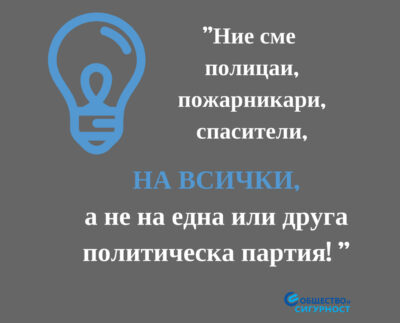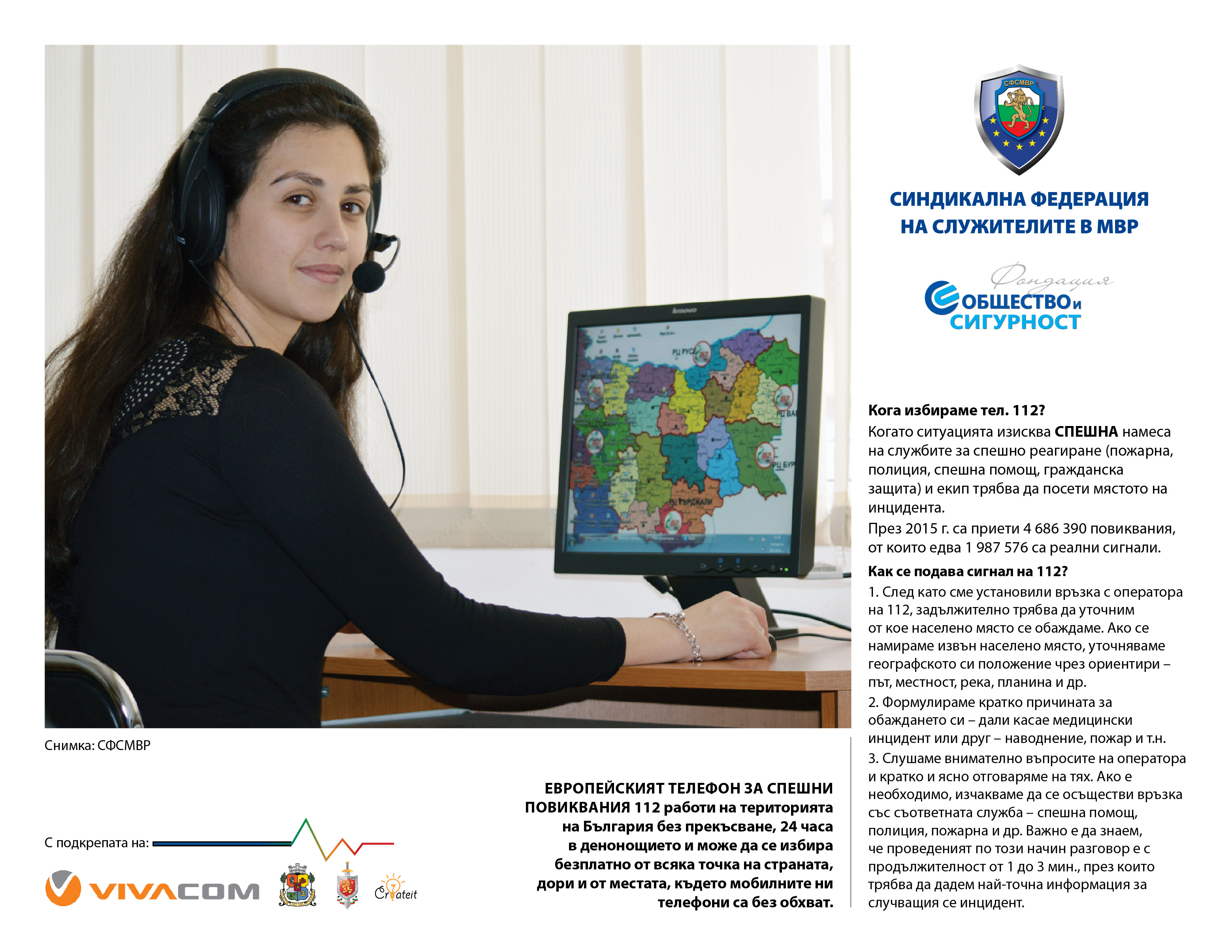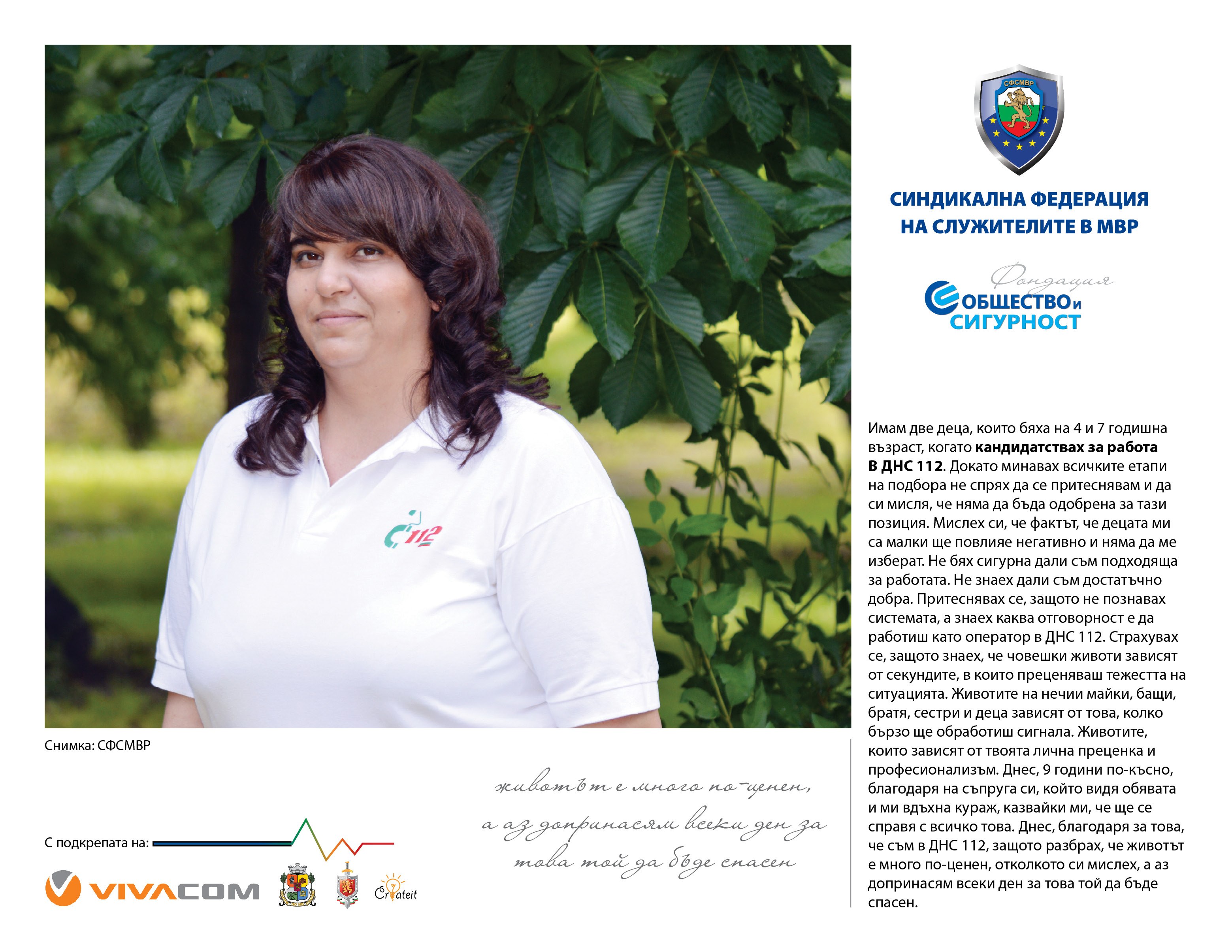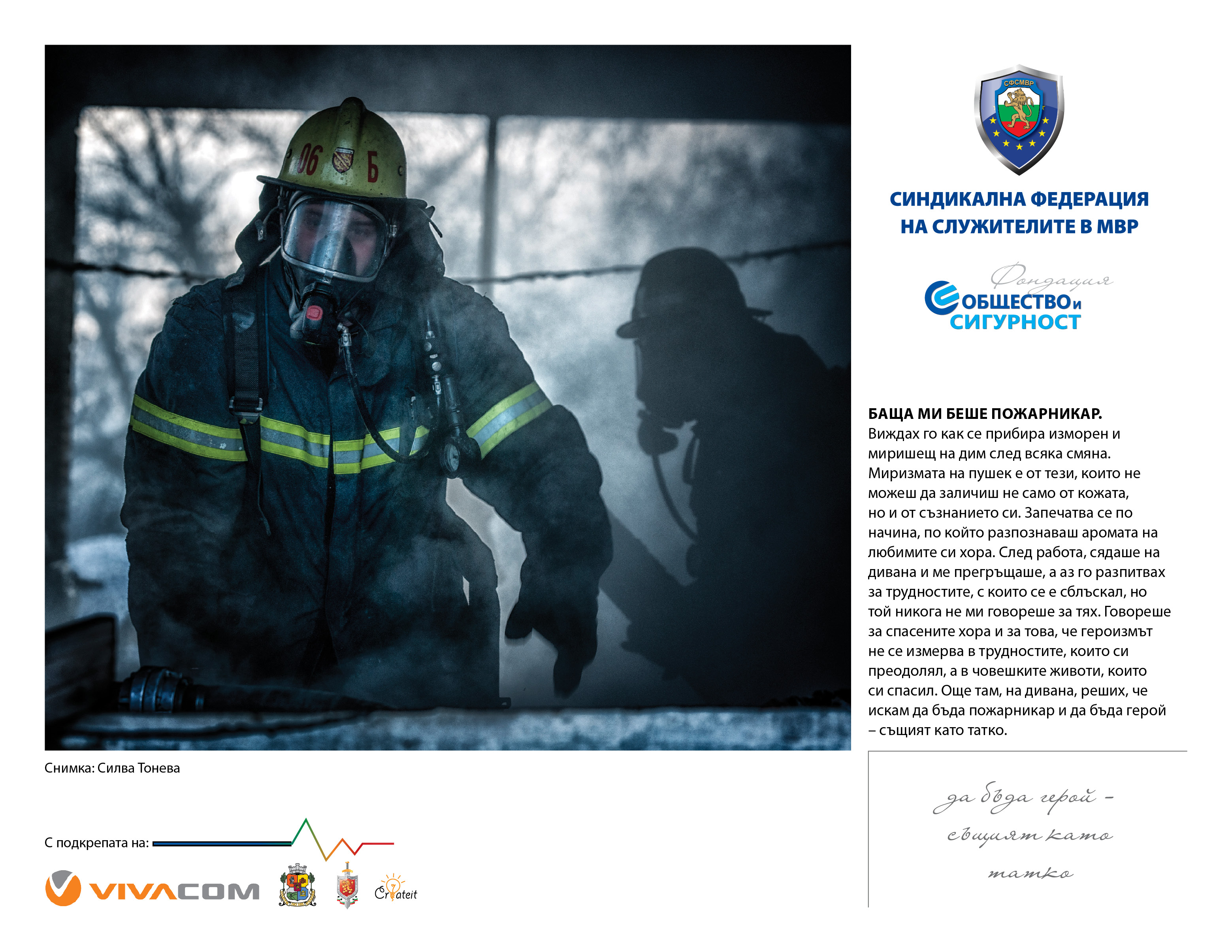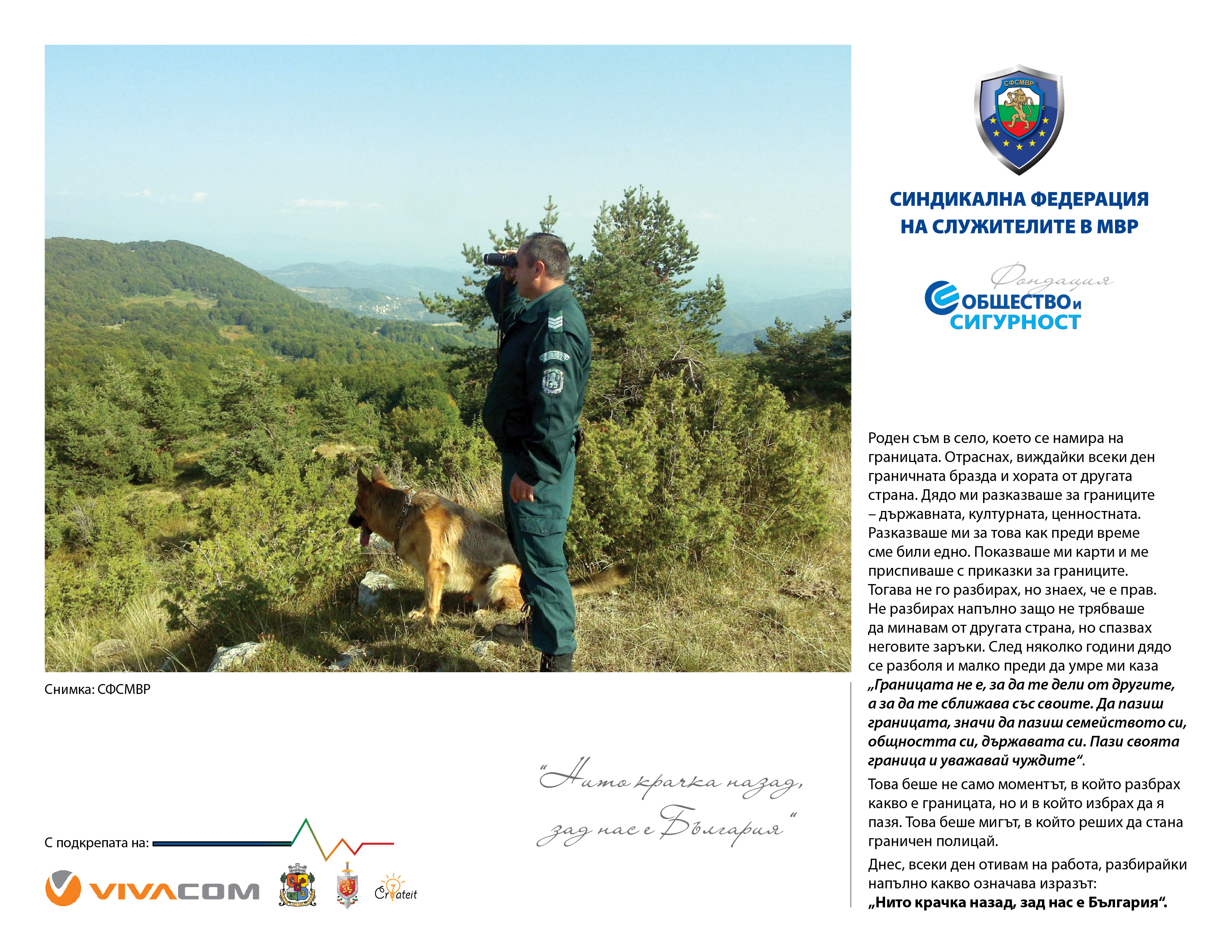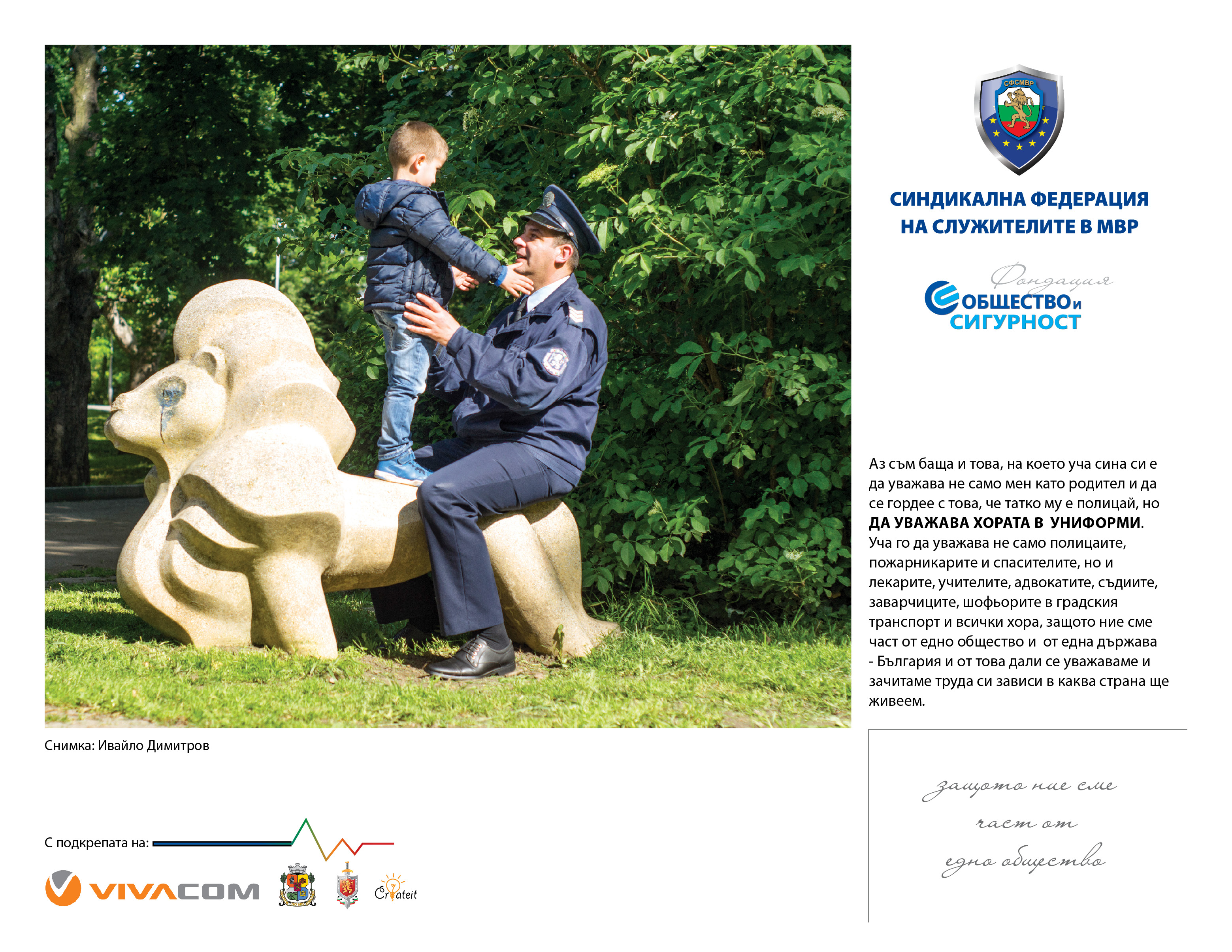- 25.01.2017
MoI: in cervice of people or politicians?
If any government had been replaced it always brought ad hoc and politically motivated changes. These changes are quite often and the main reason for the occupational stress and insecurity about their jobs among police officers, firefighters, rescuers and all workers in Ministry ot Interior. It has been said that…
- 01.09.2016
The detained foreigners in Bulgaria…
- 01.09.2016
When we have to call on 112?
When we are calling on 112? When the situation requires URGENT intervention of the emergency services (fire brigade, police, emergency, civil protection) and a team have to be sent at the accident. How to report a sygnal on phone 112? 1. As soon as you have contact with the operator…
- 01.09.2016
I work in National System 112
I have two children who were 4 and 7 years old when I applied for a job in the 112 Emergency line in Bulgaria. While I was passing all phases of the recruitment I worried and was sure I will not be approved for this position. I thought that my…
- 01.09.2016
The issues in National System 112 in Bulgaria
In 2015, 4,686,390 emergency calls are accepted and only 1,987,576 are real. Who is responsible for the unreal signals received? Who educates the citizens? Who and how impose sanctions for the unreal signals? Who measures the potential risk to the citizens? The debate on the reform of the Ministry of…
- 19.07.2016
My father was a firefighter!
My father was a firefighter. I was seeing him at home tired and smelled of smoke after each shift. The smell of smoke is one of those you can not erase not only from yout skin, but mind. It is sealed in your mind on the same way how you can…
- 19.07.2016
I keep the border of the Republic of Bulgaria!
“I was born in a village which lies on the Border. I grew up seeing every day the Border fence and people on the other side. My grandfather told me stories about the Borders. He told me everything about my country, culture, values. He told me a long time ago we were one…
- 19.07.2016
I am a father!
“I am a father and teach my son to be proud of and respect not only me as a police officer, but to respect the all people in uniforms. I teach him to respect not only the police, firefighters and rescuers, but also doctors, teachers, lawyers, judges, welders, drivers in…
- 19.07.2016
I am a mother!
“I am a mother and my daughter is very proud that I’m a police woman. She knows that I look out not only for her safety and security, but also for her friends in kindergarten. What she doesn’t known is that I am dreaming for the day when the system will be…
- 19.07.2016
The Budget and the Policies of MoI in 2016
Do we know how our money are spent? You can see in the infographics below.
- 19.07.2016
We, the Bulgarians!
“Do you know, we all Bulgarians, are sad people. We taunt the police, sing humiliating songs about police officers, spit it out and caricature the system, and when we are in trouble precisely the police officer is the only one who can help and immediately we are changing the attitudes…
- 19.07.2016
The policeman, who chose the profession, because of the love to his father…
“Unlike many of my colleagues, no one in my family was not a policeman, but I made this choice, because of my father. My father creates and sculpts figures and whole life is giving life to the tree. He wanted to see peculiar for his work – he wanted his…
- 19.07.2016
The lonely firefighters
Quite offten we can see firefighters who are fighting the firestorm and stand against it alone, but surounded by at least two or three fire trucks. Have you ever wondered what is due to the fact that the number of firefighters is equal to the number of firefighting vehicles? The…
- 23.06.2016
Children on duty!
A few months ago I was out playing basketball with my children when the ball rolled into the street. I went to it, but suddenly the laugh of my children disappeared and they froze. They saw two patrol cars on the corner. The vehicles turned and were moving slowly towards…
- 30.03.2016
Managing traumatic stress: Coping with terrorism
Terrorism threatens a society by instilling fear and helplessness in its citizens. It seeks to hold a society or government hostage by fear of destruction and harm. When terrorist acts occur, people generally look for ways to cope with the acute stress and trauma. Terrorism evokes a fundamental fear of…

